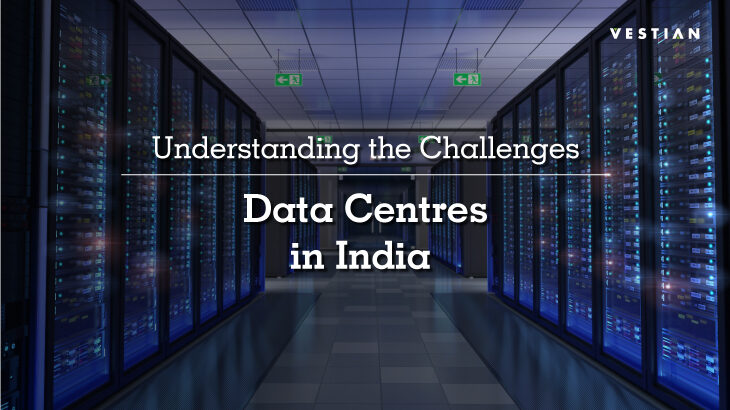India has seen a sea change in its technological landscape in the last five years, the country making fast-paced progress towards a full-fledged digital economy. Much of it could be attributed to the surge in internet connectivity and mobile phone penetration in the country. Digital payment options today are a preferred mode of transaction and a large share of the population is now actively engaging on a varied range of social media platforms and e-commerce sites.
Today, even small, and medium-sized businesses are looking to transform into technology-led businesses with a shift towards increased cloud-led innovation and are seeking their own data centres. Not surprisingly, the demand for hyperscale data centres and managed services has increased considerably in the past two years.
There are, however, several issues that need to be resolved before we truly embark on a growth trajectory for the data centre industry. Some of the key challenges currently constraining the data centre growth in India are:
Dearth of required skillset – At present, India is hampered greatly by a shortage of skilled labour, that is essential for a successful data centre. This includes skills in specialized areas such as power, HVAC, security, network and civil for power systems, facilities control and robotics, amongst others, technology skills such as programming and familiarity with certain technology platforms and tools. Additionally, problem-solving skills and critical thinking with a high priority on efficiency are also much required.
Paucity of adequate infrastructure– There is also the need for ample infrastructure to be in place. Fibre network and power requirement are key components of a data centre. Most cities have a single power service provider with no alternate sources of power. Unstable power supply and heavy reliance on generators is a major operational task for operators. Scarcity of resources such as water to cool the facilities leads to high ambient temperature and power usage effectiveness below the required level. Besides, India’s current fixed broadband speed is relatively lower than global average and is an impediment to efficient data centre operations.
Location and land constraints –Development of a data centre is different from other real estate asset classes. It requires keeping in mind the city dynamics and its GDP, adequate power infrastructure, land availability devoid of any drawbacks, access roads, viability of establishing cable routes, availability of water resources, skilled manpower and other factors like seismic activities, flood records, flight paths, distance from transportation hubs, proximity to establishments like residential areas. Thus, it is a difficult task to access land banks in cities with these particular set of requirements.
Policy requirements –With the presence of strong governments at the state and central level, concerted efforts are needed on several fronts, including creation of single-window clearances, uninterrupted power at affordable costs, 5G rollout, provision of financial incentives, efficient tax structures and stamp duty exemption on land purchase, amongst others. Data centres are different from commercial buildings, requiring a different set of norms. Thus, the government has to build far-sighted policies around such requirements. Recently, the Ministry of Electronics and Information Technology has issued a draft policy framework for intervention/promotion of data centres in India and it is expected that once the proposals are implemented, much of the issues constricting the growth of data centres would be resolved.
Capital intensive – Data centres are capital intensive, and this comes across as a strong barrier of entry for many developers and investors alike. Prevalent norms for commercial buildings that are applied to data centres lead to wastage of space and increased cost. Besides, factors such as high real estate cost, expenses on improving wide area network connectivity and increased cost of equipment owing to the ongoing pandemic have also resulted in augmenting the already heavy capex in the sector.
Data centre operations were to see significant strides in the year 2020, but the COVID-19 crisis put the spanner in the works. However, the importance of data centres has only increased, and it was accorded the status of essential services during the pandemic. It is expected that the draft policy on data centres, when implemented, would help incentivise the sector and lend confidence to global operators and investors looking at India as a preferred data centre destination. It is only a matter of time before India catches up with the developed world.
